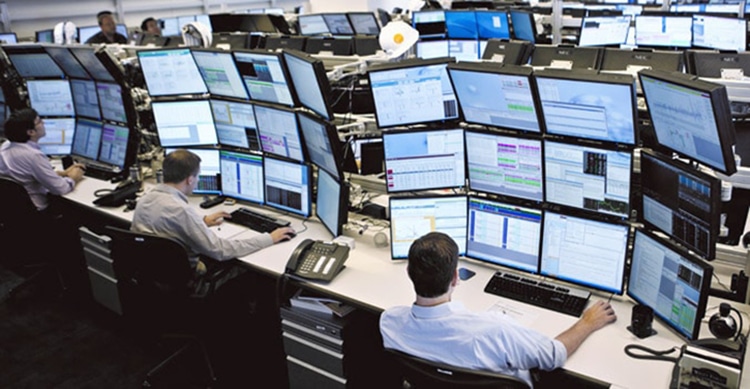
Is it worthwhile considering a job at a prop firm these days? For some, the monetary risk and lack of proving the authenticity of large trading capital may be the only reasons they neglect them. On the other hand, there are some benefits of increasing earning potential and becoming an even better risk-conscious trader for those who become successful.
If under-capitalization is one of the biggest problems facing forex traders, are prop firms the right solution? For years, the trading community has been divided in conclusively deciding whether these firms are fruitful or not.
As with trading itself, there are risks involved in deciding to join such an organization. This article will attempt to give a comprehensive analysis of whether prop firms are good enough a solution for providing capital and making better traders long-term.
The old and new model of prop firms
Prop or proprietary firms engage in trading various markets using their own funds to make a profit for themselves. A prop firm is typically a financial institution like a commercial or investment bank, brokerage, hedge fund, etc., that engages in many other activities aside from proprietary trading.
Joining such businesses usually requires a high-level qualification in finance-related fields. Furthermore, even if there are salary positions, many traditional prop firms apply monthly ‘desk fees’ for covering expenses and the privilege of trading their fund. As of now, many private prop firms primarily have entered the market working on a joining fee model.
Most have essentially rid of the expensive monthly desk fees of the past and function on a commission basis. Instead of requiring extensive qualifications or even a track record, these companies put prospective traders through an evaluation course where they need to meet predetermined risk and profit targets.
The capital problem
The main purpose of any prop firm is to solve the capital problem in forex. Many traders hamper their efforts of being under-capitalized by taking excessive margin, consequently blowing their accounts quickly. In contrast, a prop firm’s capital is significantly larger and comes with less leverage.
We get a unique situation where we could trade small on a bigger balance rather than trading big on a smaller balance; the more ‘zeros,’ the better. In this sense, it sounds like a noble idea to consider a prop firm, but not without observing other factors related to capital and other limitations.
How much buying power can a prop firm really give you?
One of the big arguments over why some traders feel prop firms are not beneficial is the buying power against the proposed account balance. For this example, let’s use the $10,000 account offered by FTMO in their evaluation phase.
In this account, the most crucial figure arguably is the $1,000 maximum loss for the equity (which is effectively the drawdown). This number represents a 10% drawdown. Although a $10,000 account sounds relatively high, the actual buying power is diminished.
Therefore, a trader has to divide their positions within the $1,000. In this case, some may argue one is better off using their own $1,000 but is this necessarily accurate? Is there a difference between trading a personal $1,000 account or a $10,000 account with a 10% drawdown?
On a personal account, some traders may not necessarily have a specific drawdown percentage in mind, which is the big difference. However, let’s assume it is also 10% on $1,000 ($100).
We can see that the buying power with a firm is superior technically (even with a 50-50 profit split), and one is less likely to be reckless when there is an explicit loss limit they should not cross.
Pros & cons
Weighing up the strengths and weaknesses is essential when considering any prop firm. Any individual advantage or disadvantage can heavily influence the decision.
Pros
- Traders have the luxury of more considerable buying power (as in the example above) due to the enormous trading capital at the firm’s disposal. Furthermore, some firms have scaling plans that increase the account size over time, consequently increasing the potential earnings.
- Because of the strict trading parameters, one is psychologically more risk-conscious with the funds and their trading than they generally would be on their own accounts.
- Being successful in a prop firm can be a good reference on one’s CV if they ever needed, for example, private investors to join their PAMM account. We could consider prop firms as the closest thing to being a professional trader or having a professional career in trading.
- Depending on the firm, traders gain access to additional features like support and special tools they may not have found in their personal capacity.
Cons
- The biggest drawback of prop firms is the joining fee. Although many that are involved in forex do not charge ‘desk fees,’ the cost may still be considerable in some cases. There is also an issue of trust in this regard.
- It is hard to verify the authenticity of the accounts given by prop firms and the source of these enormous funds. By paying a joining fee, there is very little chance of any form of refund in the unfortunate event of failing the program or evaluation course.
- The trading parameters of many prop firms favor more day traders and fewer swing traders.
- Some firms may apply restrictions to trading styles such as scalping, hedging, news trading, and holding positions & over the weekend.
Conclusion
Ultimately, deciding whether prop firms are worthwhile is a matter of ‘different strokes for different folks.’ Every circumstance is unique. As with any finance-related company, trust is still a big issue where some firms can act unethically.
Even with more recognized and trusted brands such as FTMO, The 5%ers, and Topstep, there is still a financial risk with their joining fees. While they are generally competitive, it is, in no way, a guarantee of success because of the parameters set by the firms.
Trading for a prop firm doesn’t mean completely neglecting your personal account or risking your own capital; joining a firm while trading your own account may provide another stream of income.
Prop firms aren’t necessarily for cash-strapped traders or those who feel under-capitalized but may offer a chance to amplify one’s earning potential if successful. So, depending on several factors, a prop firm can be a worthwhile consideration.








Leave a Reply